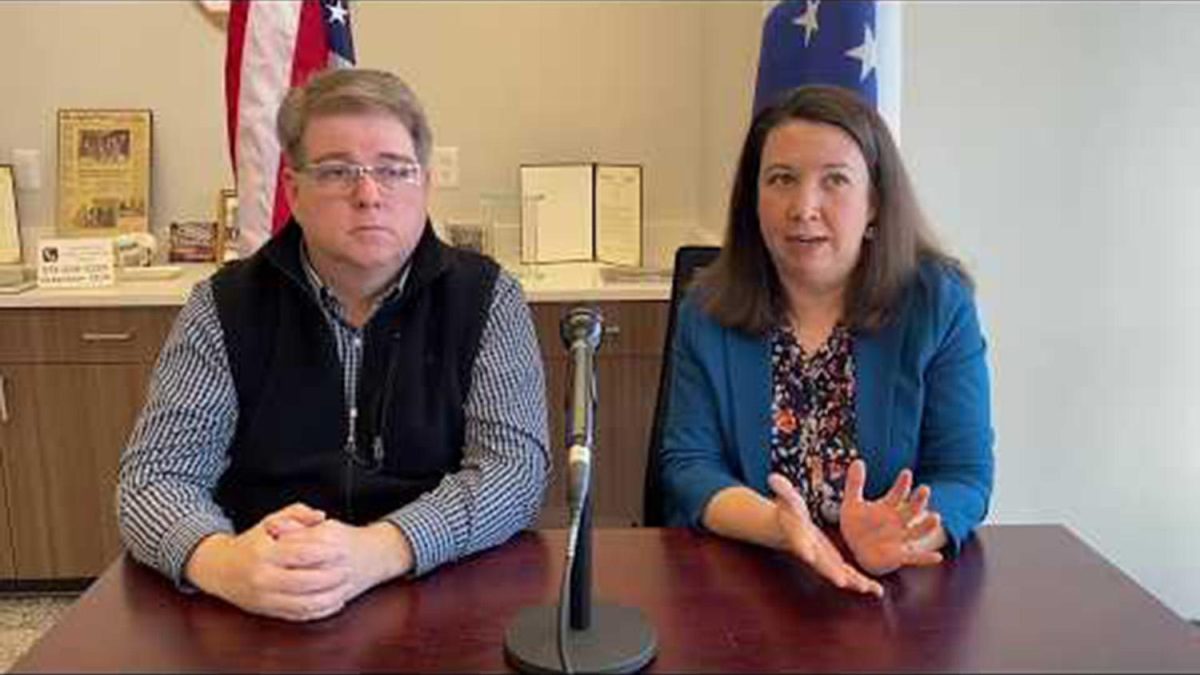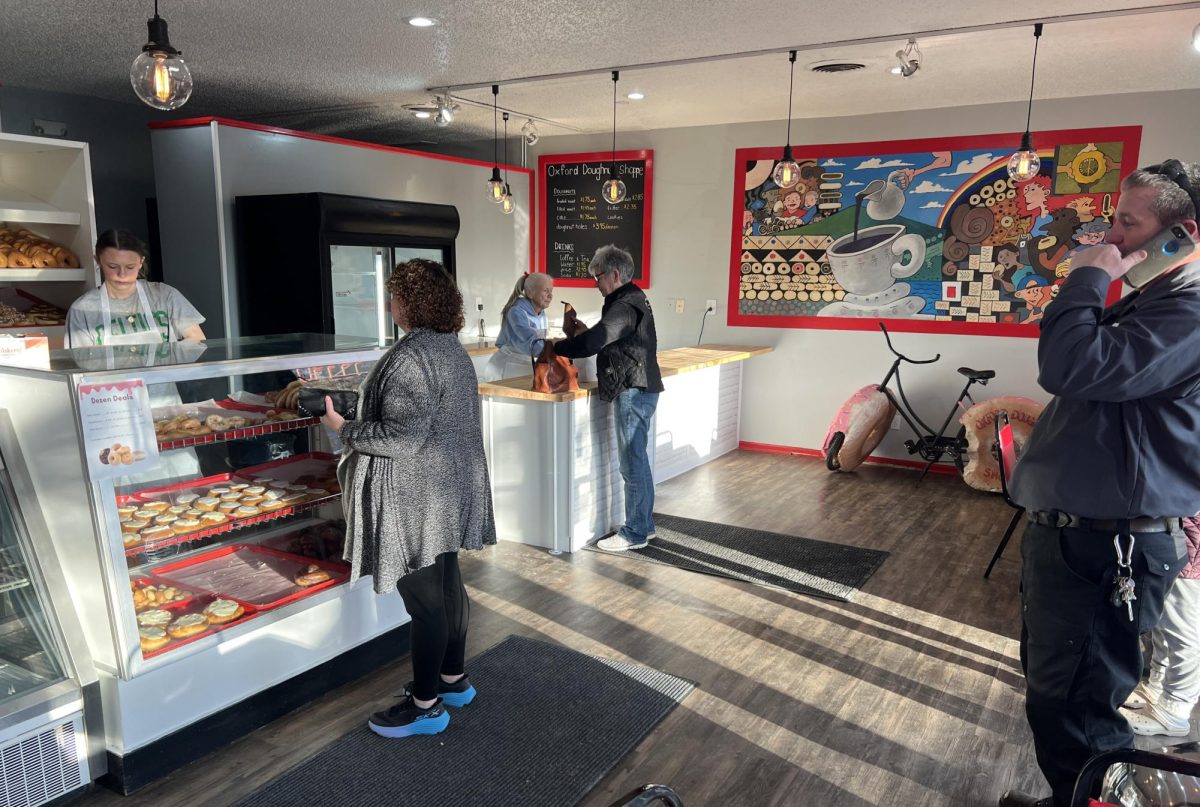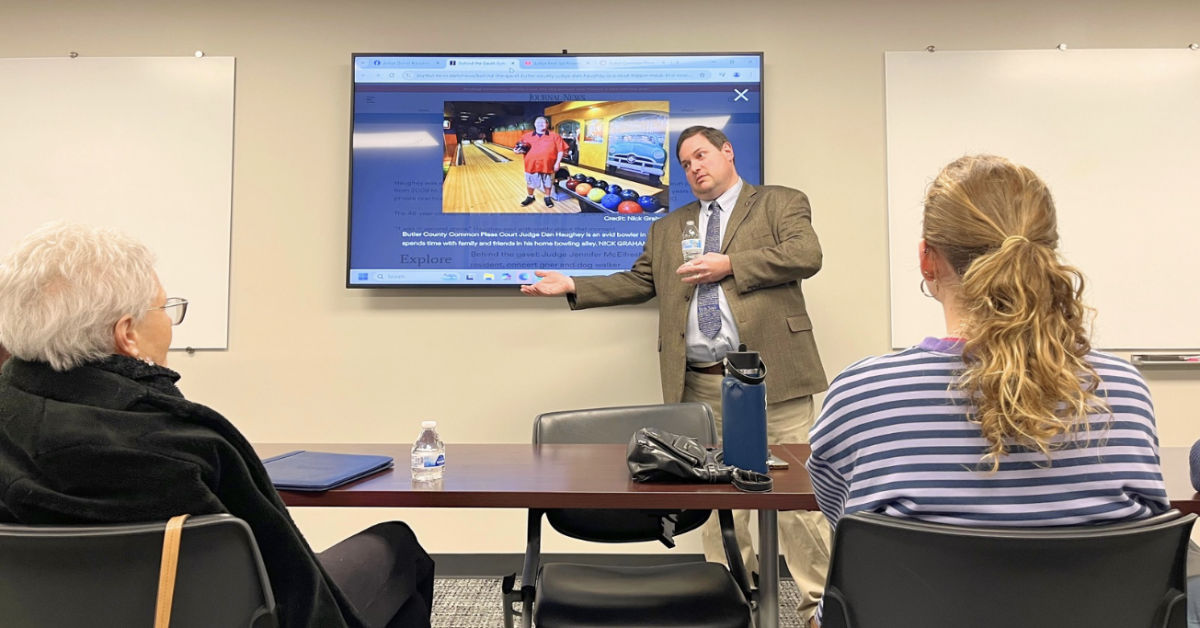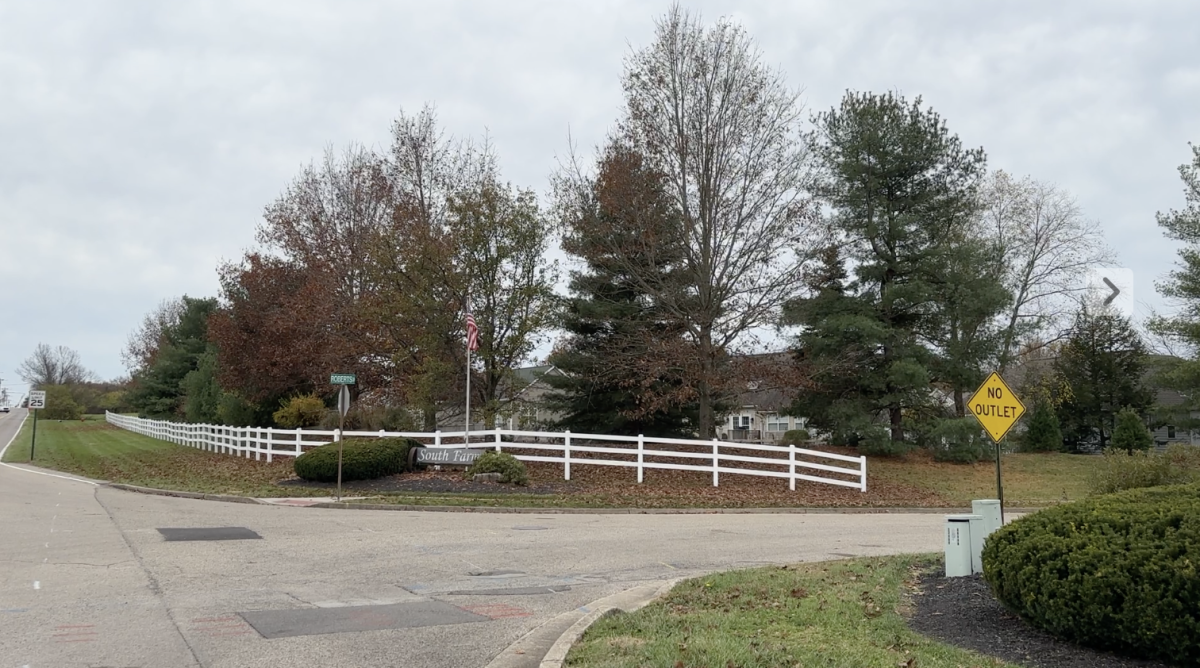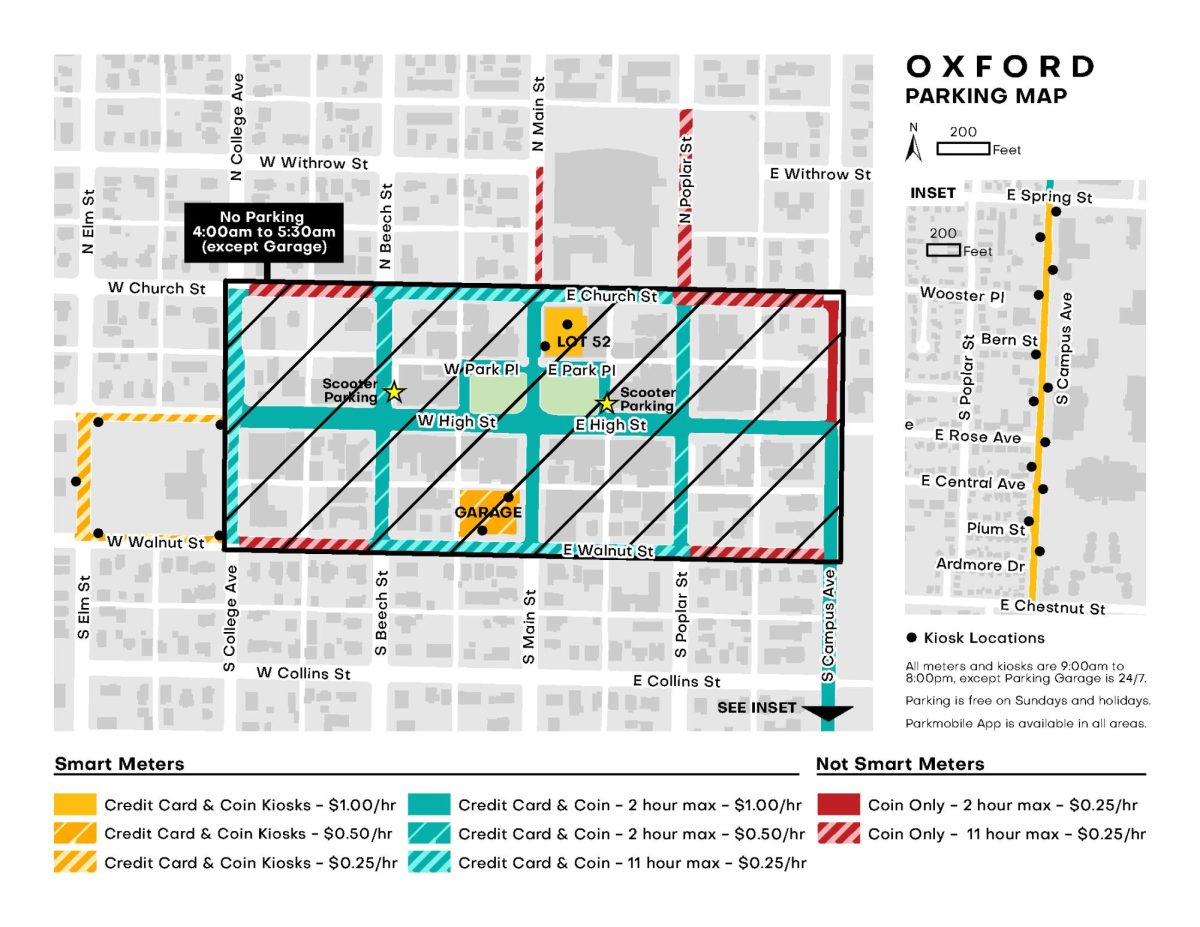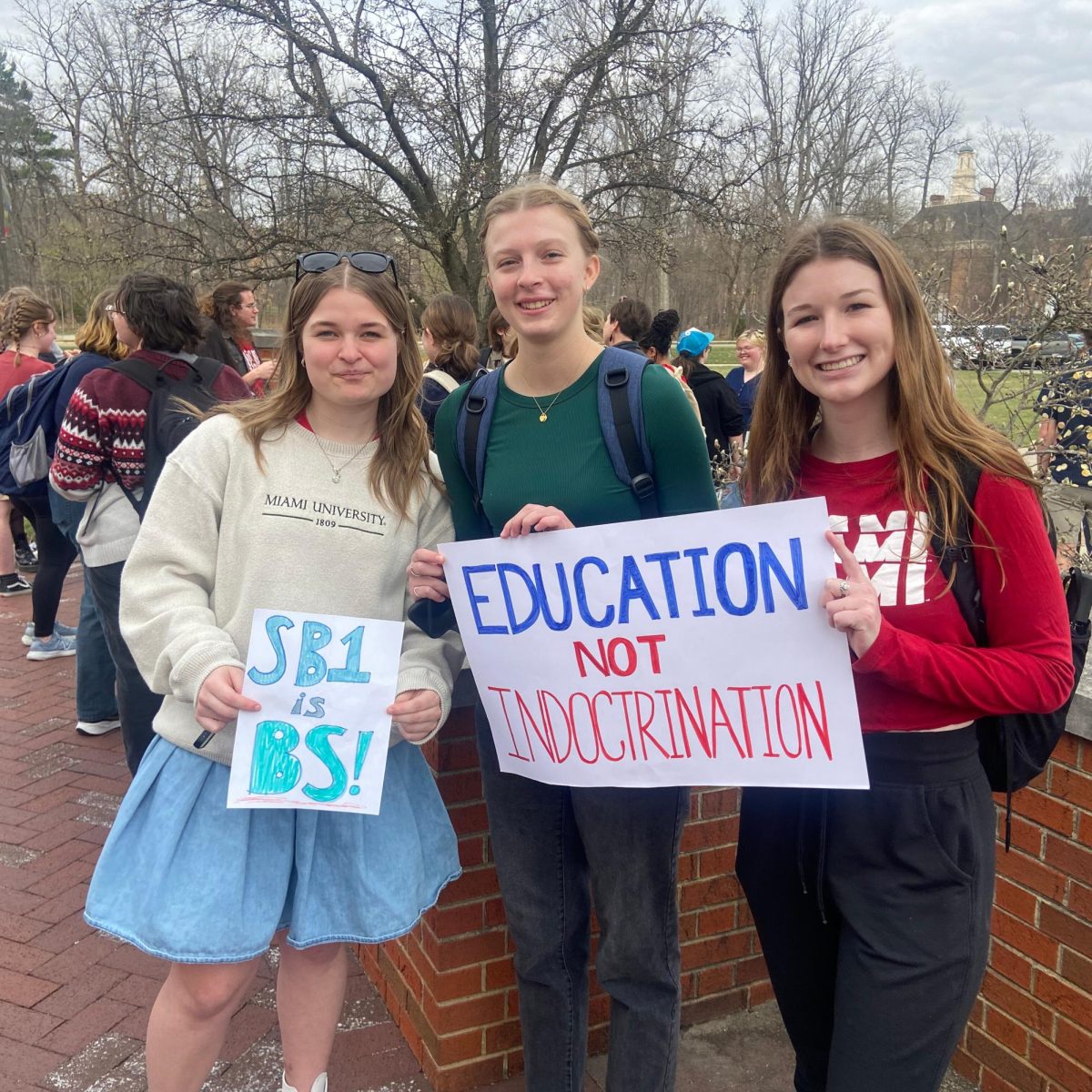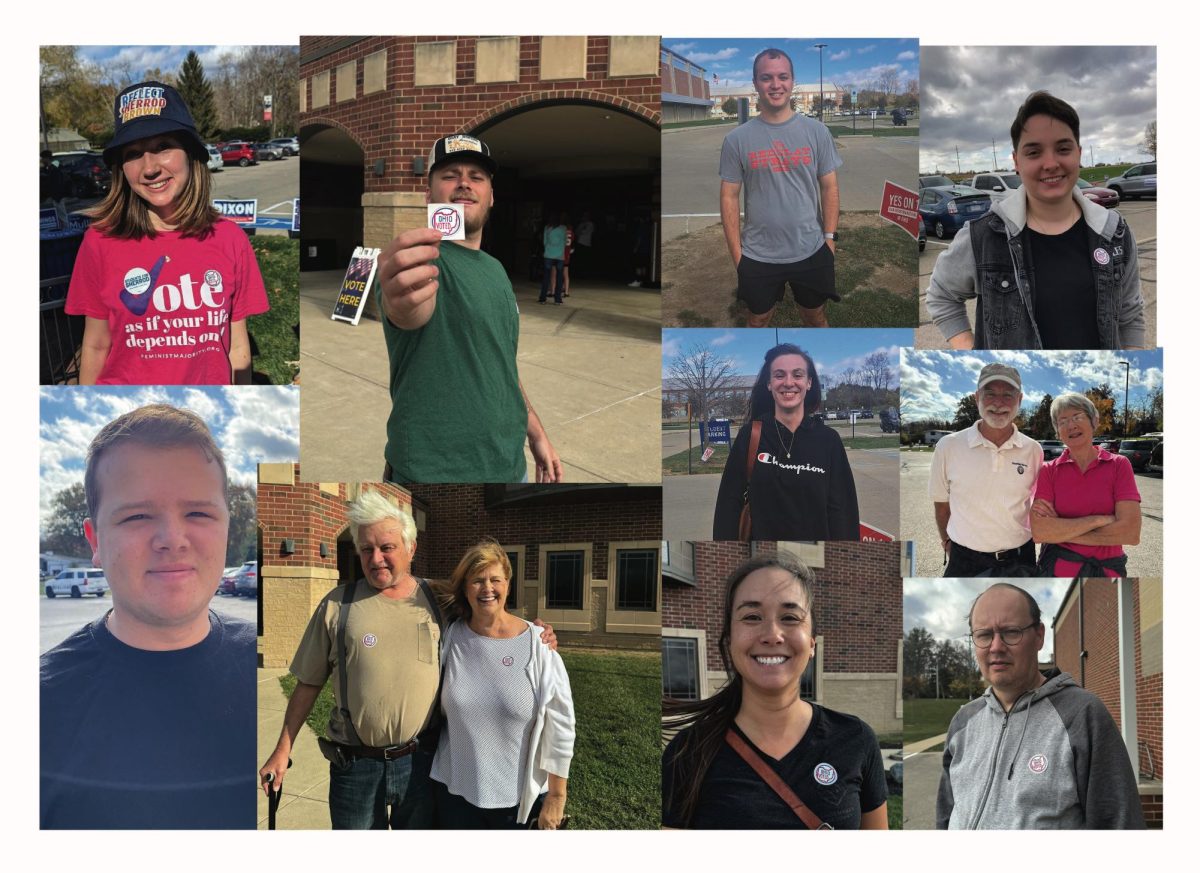Civic leaders train for all sorts of emergencies — floods, blizzards, tornados, even shootings. But the COVID-19 pandemic, with its public health and economic ramifications, is unlike anything faced before.
The Observer talked to four of the people in Oxford’s city government who are leading the city through this crisis.
In a relatively empty courthouse last November, the Oxford City Council met to elect and swear in its new mayor. A few short months later, Mike Smith is helping to lead a town through the historic COVID-19 pandemic.
“It’s been more stressful than I would like to admit,” Smith said. “We’re taking it one challenge at a time.”
Smith has served on city council since 2013. From 2013 to 2015, he served as the vice mayor. In November, Smith was re-elected to council, and then selected by council to be the new mayor. Smith is a graduate of Talawanda High School and Miami University.
One of the biggest challenges for Smith and the city is ensuring that the people of Oxford are complying with the social distancing guidelines put forth by health officials and Ohio Gov. Mike DeWine. Smith said keeping to those guidelines is hardest for those in the 18- to 30-year-old age group.
“We still have some people that don’t maybe take the COVID-19 outbreak as seriously as they should,” he said. Smith said the city is urging people to stay home and follow the social distancing guidelines — stay at home if at all possible and if you must go out, try to remain in groups of fewer than 10 people and stay at least six feet apart.
Jessica Greene, Oxford’s assistant city manager, is concerned with the economic impact the commercial shutdown and social distancing will have on the city. Greene was hired into her position last May, after serving as the director of Enjoy Oxford, the city’s non-profit visitors bureau. As assistant city manager, she is in charge of the city’s public communications and human resources. She also recently added the economic development director’s duties to her portfolio with the retirement of Alan Kyger. And then the pandemic hit.
“Our population is less,” Greene said, referring to Miami University shutting its dorms and switching all classes to online, which resulted in most students leaving Oxford and going home. “Now we have businesses closed and people unemployed.”
With businesses forced to close, Oxford’s economy is taking a hard hit from COVID-19. Many towns are facing economic pain, but Oxford is unique as a large percentage of its population — and its retail customer base — consist of Miami students. Without them, the impact weekends they bring, and the other events the University hosts, city businesses are understandably concerned.
“We needed to come up with a response to help our small businesses get through these very difficult times because, as you know, pretty much all of our students are gone,” said City Manager Doug Elliott. Elliott estimated about four-fifths of off-campus student residents, and virtually all of the students who lived in campus dorms, are no longer in Oxford, although some off-campus students are trickling back into town.

“It won’t be until mid-August, we project, until we see students returning,” Elliott said. “That’s a long period of time for our small businesses.”
The city also is facing a loss of revenue with tax filing delayed to July 15, and an estimated reduction in hotel and state levied locally shared taxes as well as fines and investment income, according to Elliott.
“We’re already estimating our general fund revenues are going to be down by 10% or more, depending on how this continues,” he said.
In response to these forecasts, Elliott said the city has frozen all hiring except public safety personnel, suspended all out of state travel, and reduced budgeted capital expenditures. Elliott has been the city manager in Oxford for 12 years. He compared the economic impact of COVID-19 to the hit many cities took during the recession in 2008.
“It (2008) was totally different to the city of Oxford because parents were still sending their kids to college,” Elliott said.
The pandemic brings unique situations to all areas of the city. Police Chief John Jones, for instance, said there’s no handbook on how to handle a pandemic.
“While you may have emergency operations plans in place, this is all new territory,” he said.

Jones, a Miami graduate, has served as a police officer for 18 years, and before that he was a volunteer EMS/firefighter. Four years ago, Jones was promoted to chief. When talking about his time as a police officer, he compared the current situation with Hurricane Ike, which swept through in 2008, leaving many without power for days.
“That’s a very different type of emergency, and honestly that was one you kind of understood more,” Jones said.
Elliott, like Jones, said Oxford has dealt with other natural disasters, but nothing has been like the effects of COVID-19.
“They pale in comparison to this,” he said.
Elliott and Jones said communication has been key for the city, and the police department, specifically interdepartmental communication.
“I have at least three different conference calls each week now,” Jones said. The city is in contact with the Butler County Health Department, the Butler County Emergency Management Agency and the Emergency Operations center regularly.
The police department has stopped doing in-person daily roll calls for officers, in-person meetings, and all officers are given personal protection equipment for their calls. They have moved to online reporting, and phone calls as methods for reporting incidents to reduce the amount of person-to-person contact. Jones said it’s been pretty slow in Oxford in terms of police calls since most of the students went home.
“With most of the students leaving, we’ve definitely seen a decrease in calls,” Jones said. “We’re actually not busy right now.”
Jones said he hopes people continue to adhere to social distancing guidelines even as the warmer weather approaches.
Despite the uncertain times the COVID-19 pandemic has presented, these leaders all expressed a common theme in describing their community’s response to the crisis: pride.
“I’m really most proud of the entire town because everybody has pitched in for whatever the problem is,” Smith said.
According to Smith, people are donating masks, volunteering to pick up groceries and medicine, and passing out school lunches for students at Talawanda. Oxford residents also helped donate school supplies to students who may not have had them. Smith took pride in the fact that all the city has to do is put out a call, and people are willing to drop everything to help out.


